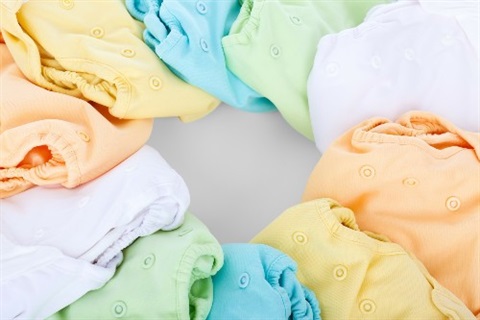
Nillumbik Shire Council has joined 11 councils to research and understand how to implement a best practice reusable nappy program to reduce waste to landfill.
The Best Practice Reusable Nappy Program – Feasibility Study, led by Monash Council, has been awarded up to $80,000 from Sustainability Victoria, through the Victorian Government’s Recycling Victoria Councils Fund.
Disposable nappies are becoming one of the most significant waste issues, comprising 5 to 15 per cent of waste in household bins.
About two billion disposable nappies end up in landfill per year in Australia and it can take up to 500 years for nappies to break down.
The feasibility study will engage with parents to understand current barriers to using reusable nappies and will benchmark existing programs of other councils to reach target audiences, meet parents’ needs, and evaluate the effectiveness of programs to reduce waste and change behaviour.
The collaborative campaign hopes to understand and break down barriers to using reusable nappies in different parent demographics and allows for the sharing of costs and resources, increasing the likelihood of an ongoing reusable program.
The participating municipalities include Bayside City Council, Boroondara City Council, Glen Eira City Council, City of Greater Dandenong, Knox City Council, Maribyrnong City Council, Maroondah City Council, City of Monash, Moonee Valley City Council, Nillumbik Shire Council, Stonnington City Council and Yarra Ranges Council.
Nillumbik Mayor Peter Perkins said that as a leader in recycling and waste minimisation, Council was pleased to be part of the innovative program.
“Council audits have found that disposable nappies make up roughly 10 per cent of the waste in Nillumbik’s landfill bins,” Cr Perkins said.
“This program will allow us to explore ways of supporting parents while reducing waste going to landfill, and therefore the associated costs to ratepayers.”
The study will recommend a best-practice model to achieve waste reduction, assist and support parents, increase the circular economy and create the basis for behaviour change across Victoria.







